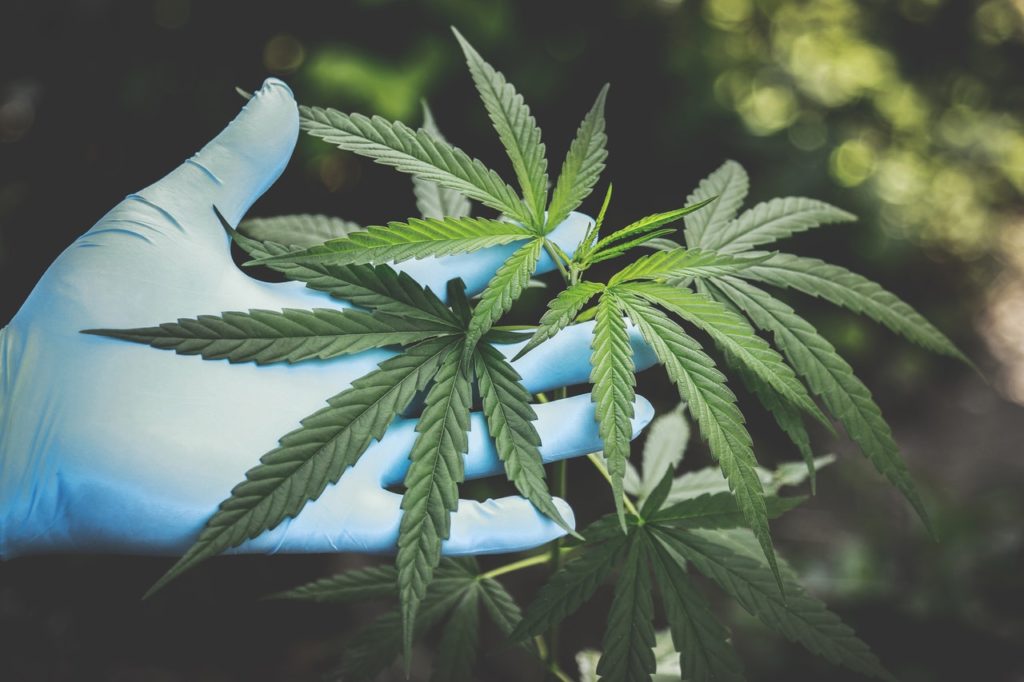In order to truly understand the synergy of cannabis and blockchain, we must look beyond the hype and speculation, and understand how and why the cannabis industry needs blockchain technology. We must also know how both industries can depend on each other. Few industries are as misunderstood as cannabis and blockchain. Blockchain technology could help in the movement to legalize cannabis.
Cannabis and blockchain: how it helps grow the industry


Few industries are as misunderstood, or as complementary, as cannabis and blockchain. Both niches are relatively new and exist in highly speculative markets with foggy regulatory conditions.
However, they have also received an influx of highly talented entrepreneurs (like Veritas Farms Inc. (OTC:VFRM)) and programmers looking to solve some of their respective industry’s largest problems.
Legalization could be aided by combining cannabis and blockchain technology
In order to truly understand the synergy of cannabis and blockchain, we must look beyond the hype and speculation and understand how and why the cannabis industry needs blockchain technology.
We must also understand how both industries may inevitably depend on each other.
Considering the peculiarity of the sector, medical marijuana faces much stricter legislative and regulatory control. It is here that the implementation of blockchain technology can standardize the industry.
It can help to make it fully verifiable and help with creating a system of trust between patients, doctors, farmers, and suppliers.
Blockchain to assist quality assurance and maintenance


Combining cannabis and blockchain enables businesses to manage their supply chains in real-time, eliminating paper trails and their inescapable lag.
Since the cannabis space is relatively new, few companies have been able to create an effective vertical integration in their supply chain free from any lag or loss of product.
One such company is Veritas Farms Inc. (OTC:VFRM), a U.S.-based CBD producer and distributor. The company demonstrates the potential of the cannabis sector through impressive growth in the last year.
In Q2 2019 Veritas Farms generated more than $2.9 million in total revenue equalling a 500% increase since Q2 2018. The company’s gross profits reached $1,523,413 and thanks to great results, managed to reduce liabilities by over $1.3 million.
It’s likely that cannabis will touch many different businesses from when it is farmed to when it gets to an authorized dispensary. This process can potentially create multiple costly points of failure.
Cannabis businesses utilizing blockchain will be able to precisely pinpoint any inefficiencies in the process and will nip them in the bud.
Cannabis and blockchain at a glimpse


With blockchain technology, it would be possible to ensure efficient supply chain management and monitor the entire production chain. This includes everything from seed processing to the patients who purchased it.
A review of each step would not only mitigate the risks involved but would also allow the final purchaser to verify whether the cannabis was grown under conditions similar to those provided for a pharmaceutical product.
Ensuring that the product is safe and effective has become a core mission in the businesses in medical cannabis and blockchain technology as well.
This would increase confidence in the origin and quality of the product and compliance with regulations in different jurisdictions, effectively reducing illegal trade on the black market.
More benefits of combining cannabis with blockchain technology
In addition, a collaboration between companies in cannabis and blockchain can also have positive fiscal implications.
This can be seen in California, where legislators have introduced a bill that would allow cannabis-related companies to pay taxes with cryptocurrency.
This bill, Assembly Bill 953, would allow California state, municipal and municipal offices to accept it as of Jan. 1, 2020. In such a fragmented international market, the Californian project seems visionary.
__
(Featured image by Aphiwat Chuangchoem via Pexels)
DISCLAIMER: This article was written by a third party contributor and does not reflect the opinion of Hemp.im, its management, staff or its associates. Please review our disclaimer for more information.
This article may include forward-looking statements. These forward-looking statements generally are identified by the words “believe,” “project,” “estimate,” “become,” “plan,” “will,” and similar expressions. These forward-looking statements involve known and unknown risks as well as uncertainties, including those discussed in the following cautionary statements and elsewhere in this article and on this site. Although the Company may believe that its expectations are based on reasonable assumptions, the actual results that the Company may achieve may differ materially from any forward-looking statements, which reflect the opinions of the management of the Company only as of the date hereof. Additionally, please make sure to read these important disclosures.
First published in AGROLINK, a third-party contributor translated and adapted the article from the original. In case of discrepancy, the original will prevail.
Although we made reasonable efforts to provide accurate translations, some parts may be incorrect. Hemp.im assumes no responsibility for errors, omissions or ambiguities in the translations provided on this website. Any person or entity relying on translated content does so at their own risk. Hemp.im is not responsible for losses caused by such reliance on the accuracy or reliability of translated information. If you wish to report an error or inaccuracy in the translation, we encourage you to contact us.



Comments are closed for this post.